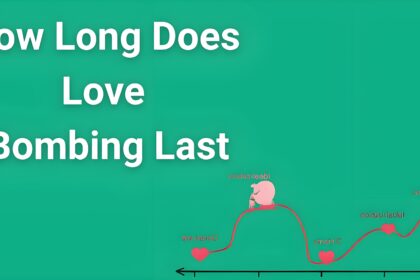Have you ever wondered if your intense romantic gestures might be pushing someone away instead of drawing them closer? Learning how to not love bomb starts with recognizing that overwhelming someone with attention, gifts, and affection can actually damage the very relationship you’re trying to strengthen.
- What Is Love Bombing and Why Should You Avoid It?
- 7 Warning Signs You Might Be Love Bombing Someone
- Understanding the Root Causes of Love Bombing Behavior
- Building Healthy Relationship Patterns Instead
- When Professional Help Might Be Beneficial
- The Difference Between Genuine Love and Love Bombing
- Breaking Free from Love Bombing Patterns
- Frequently Asked Questions
- Moving Forward with Healthy Relationship Skills
Love bombing isn’t always intentional manipulation. Sometimes, genuine excitement about a new relationship or deep-seated attachment issues can cause us to smother our partners with excessive attention. Understanding the difference between healthy romantic enthusiasm and problematic love bombing behaviors is crucial for building lasting, authentic connections.
What Is Love Bombing and Why Should You Avoid It?
Love bombing involves overwhelming someone with excessive attention, affection, and romantic gestures early in a relationship. Unlike genuine expressions of love that develop naturally over time, love bombing creates an artificial sense of intimacy that often serves to control rather than connect.
When you engage in love bombing behaviors, you’re essentially fast-tracking emotional intimacy without giving your partner the space to develop genuine feelings. This creates an unstable foundation that often leads to relationship problems down the road.
The key difference between healthy romantic interest and love bombing lies in the pacing, intensity, and underlying motivation. Healthy romance allows both partners to set the pace together, while love bombing pushes the relationship forward at an uncomfortable speed.
7 Warning Signs You Might Be Love Bombing Someone
1. You’re Moving at Lightning Speed
One of the clearest indicators that you need to learn how to not love bomb is the pace of your relationship progression. Are you talking about future plans, exclusivity, or deep emotional topics within the first few dates?
Healthy relationships develop gradually. If you find yourself saying “I love you” within the first few weeks, planning vacations together before you’ve been dating for months, or pushing for commitment early on, you’re likely moving too fast.
Instead, try this: Force yourself to slow down. Set a personal rule that you won’t discuss major relationship milestones until you’ve been dating for at least a month. Give both yourself and your partner time to genuinely get to know each other.
2. You’re Showering Them with Excessive Gifts
Gift-giving becomes problematic when it’s excessive, expensive, or doesn’t match the relationship timeline. Bringing elaborate gifts on early dates or spending significant money on someone you barely know can make them feel uncomfortable and indebted to you.
The motivation behind excessive gift-giving often stems from a desire to impress, control, or create obligation rather than genuine generosity. If you find yourself constantly buying things for your partner or feeling like you need to “win them over” with material items, this is a red flag.
Instead, try this: Save meaningful gifts for appropriate milestones. Focus on getting to know their interests and preferences first, then give thoughtful, appropriately-timed gifts that show you’ve been listening.
3. You Need Constant Contact and Attention
Do you text your partner dozens of times a day? Do you get anxious when they don’t respond immediately? Requiring constant communication and attention from a romantic partner is a classic love bombing behavior that can quickly become suffocating.
This excessive need for contact often stems from anxiety, insecurity, or fear of abandonment. While it’s natural to want to communicate with someone you’re excited about, healthy relationships require space for both partners to maintain their individual lives.
Instead, try this: Establish healthy communication boundaries. Limit yourself to a few meaningful texts per day rather than constant check-ins. Remember that your partner has a life outside of your relationship, and that’s actually a good thing.
4. You Get Upset When They Have Other Priorities
If you find yourself feeling jealous or resentful when your partner spends time with friends, family, or pursuing their own interests, you might be engaging in love bombing behaviors. Healthy partners support each other’s independence and outside relationships.
Getting upset about their other commitments or trying to monopolize their time indicates that you’re more focused on control than on building a genuine connection. This behavior often pushes people away rather than bringing them closer.
Instead, try this: Actively encourage your partner to maintain their friendships and pursue their interests. Show genuine interest in their life outside of your relationship. Remember that a person with a rich, full life is more attractive and interesting as a partner.
5. You’re Idealizing Them Beyond Reality
Love bombers often put their targets on unrealistic pedestals, describing them as “perfect,” “soulmates,” or “unlike anyone they’ve ever met” very early in the relationship. This idealization prevents you from seeing your partner as a real, complex human being with both strengths and flaws.
When you idealize someone, you’re actually falling in love with your projection of who you want them to be rather than who they actually are. This sets both of you up for disappointment when reality inevitably sets in.
Instead, try this: Focus on getting to know the real person, including their imperfections. Ask yourself what you actually know about them versus what you’re assuming or hoping. Embrace their humanity rather than putting them on a pedestal.
6. You’re Ignoring Their Boundaries or Discomfort
Pay close attention to how your partner responds to your attention and affection. If they seem overwhelmed, try to slow things down, or express discomfort with the intensity of your attention, these are important signals to heed.
Learning how to not love bomb requires developing sensitivity to your partner’s comfort level and respecting their boundaries even when it means pulling back from what feels natural to you.
Instead, try this: Regularly check in with your partner about the pace and intensity of your relationship. If they express any discomfort, take it seriously and adjust your behavior accordingly. Their comfort should be more important than your desire to express affection.
7. You Feel Desperate or Anxious About the Relationship
Often, love bombing behaviors stem from internal anxiety, insecurity, or fear of abandonment. If you find yourself feeling desperate to secure the relationship or anxious about losing this person, you might be using love bombing as a way to cope with these uncomfortable feelings.
This desperation often comes across to your partner and can be incredibly off-putting. Ironically, the more desperately you try to hold onto someone, the more likely you are to push them away.
Instead, try this: Work on your own emotional regulation and self-worth outside of the relationship. Consider whether you might benefit from professional support to address underlying attachment issues or anxiety patterns.
Understanding the Root Causes of Love Bombing Behavior
To effectively learn how to not love bomb, it’s important to understand why you might be engaging in these behaviors in the first place. Love bombing often stems from deep-seated emotional patterns and attachment styles that developed early in life.
Many people who engage in love bombing have anxious attachment styles, which can manifest as a deep fear of abandonment and a need for constant reassurance from romantic partners. Others might have learned these patterns from family dynamics or past relationships where love was conditional or inconsistent.
Sometimes, love bombing behaviors develop as a response to past rejection or heartbreak. If you’ve been hurt in previous relationships, you might unconsciously believe that you need to work extra hard to “earn” love and prevent future abandonment.
Building Healthy Relationship Patterns Instead
Learning how to not love bomb isn’t just about stopping problematic behaviors – it’s about developing healthier ways to express affection and build genuine connections. Healthy relationships are built on mutual respect, appropriate pacing, and authentic communication.
Focus on developing genuine interest in your partner as an individual rather than as someone who can meet your emotional needs. Ask thoughtful questions about their life, goals, and experiences. Listen actively to their responses and remember what they tell you.
Practice emotional self-regulation by developing coping strategies for anxiety, insecurity, and fear of abandonment that don’t involve your romantic partner. This might include therapy, meditation, journaling, or other self-care practices.
When Professional Help Might Be Beneficial
If you recognize multiple love bombing patterns in your relationship behavior and find it difficult to change these patterns on your own, professional support can be incredibly valuable. A qualified therapist can help you understand the root causes of these behaviors and develop healthier relationship skills.
For those dealing with the aftermath of their own love bombing behaviors or trying to understand complex relationship dynamics, getting an expert analysis of your specific situation can provide crucial clarity. Professional assessment can help you understand not just what you’re doing wrong, but why you’re doing it and how to change.
Sometimes, love bombing behaviors are connected to deeper issues with attachment, trauma, or personality patterns that require specialized support to address effectively. Working with someone who understands these dynamics can accelerate your healing and help you build the healthy relationship skills you desire.
The Difference Between Genuine Love and Love Bombing
Understanding how to not love bomb requires recognizing the fundamental differences between authentic romantic expression and manipulative or compulsive behaviors. Genuine love develops gradually and is based on really knowing and appreciating someone for who they are.
Real love involves mutual respect for boundaries, support for each other’s independence, and patience with the natural pace of relationship development. It doesn’t require constant validation or create anxiety when your partner isn’t immediately available.
Love bombing, on the other hand, often serves the love bomber’s needs more than the recipient’s. It’s typically driven by anxiety, insecurity, or a desire to control the relationship outcome rather than genuine care for the other person’s wellbeing.
Breaking Free from Love Bombing Patterns
If you’ve recognized love bombing patterns in your relationship behavior, the good news is that these patterns can be changed with awareness and effort. Start by slowing down and giving yourself time to process your emotions before acting on them.
Develop a support system outside of your romantic relationships so you’re not depending entirely on one person to meet all your emotional needs. This might include close friendships, family relationships, therapy, or support groups.
For those who have been trapped in cycles of intense, unhealthy relationship patterns, specialized resources can provide structured guidance for breaking free. A systematic approach to understanding and changing these patterns can be much more effective than trying to figure it out alone.
Frequently Asked Questions
Q: How do I know if I’m love bombing or just really excited about someone?
A: The key difference is in your partner’s response and your motivation. If your partner seems comfortable and reciprocates naturally, and your behavior stems from genuine excitement rather than anxiety or need for control, you’re probably fine. However, if your partner seems overwhelmed or if you feel desperate to secure their affection, you might be love bombing.
Q: What should I do if someone tells me I’m love bombing them?
A: Take their feedback seriously and immediately slow down your approach. Thank them for their honesty, apologize if your behavior made them uncomfortable, and ask specifically what changes they’d like to see. Use this as an opportunity to examine your own patterns and motivations.
Q: Can love bombing behaviors be changed?
A: Absolutely. Like any behavioral pattern, love bombing can be changed with awareness, effort, and often professional support. The first step is recognizing the pattern, which you’ve already done by reading this article.
Q: Is it possible to love bomb someone unintentionally?
A: Yes, many people engage in love bombing behaviors without realizing it, especially if they have anxious attachment styles or learned these patterns from family or past relationships. Unintentional love bombing is still problematic and should be addressed.
Q: How long should I wait before expressing strong feelings?
A: There’s no universal timeline, but strong feelings should develop gradually as you get to know someone better. If you’re feeling intense emotions very early on, take time to examine whether these feelings are based on who the person actually is or on your projections and hopes.
Moving Forward with Healthy Relationship Skills
Learning how to not love bomb is ultimately about developing the emotional intelligence and self-awareness needed for healthy, lasting relationships. This process often involves examining your own attachment patterns, addressing underlying insecurities, and learning to regulate your emotions independently.
Remember that building genuine connections takes time, and the best relationships develop when both partners feel free to be themselves without pressure or overwhelming intensity. By slowing down, respecting boundaries, and focusing on getting to know your partner as a real person rather than an idealized fantasy, you’ll be much more likely to build the authentic, lasting love you’re seeking.
The journey toward healthier relationship patterns isn’t always easy, but it’s one of the most worthwhile investments you can make in your emotional wellbeing and future happiness. Take it one step at a time, be patient with yourself as you learn new patterns, and don’t hesitate to seek professional support when you need it.






